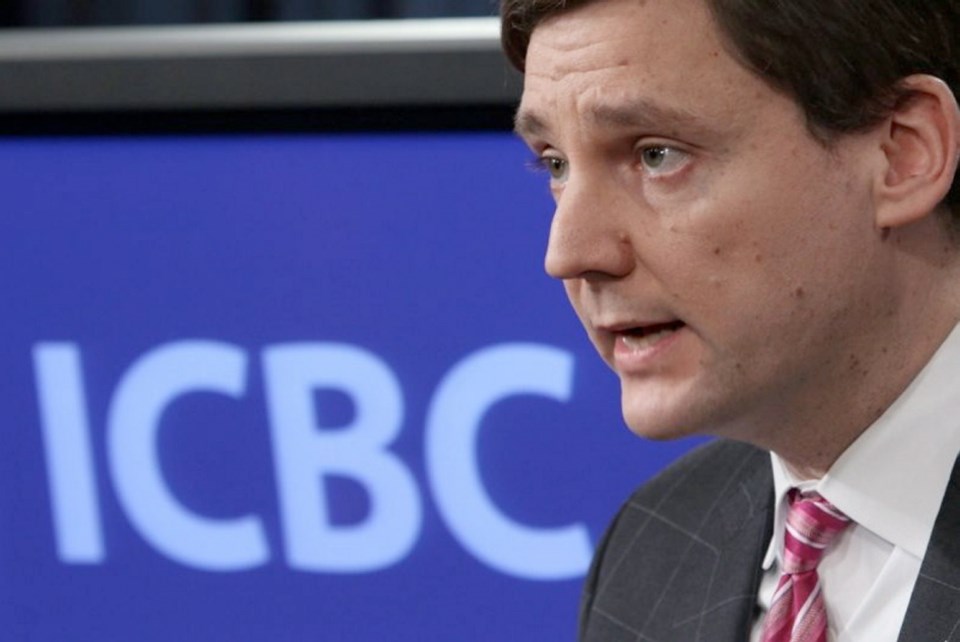B.C.’s trial lawyers are gearing up to challenge the provincial government’s new auto insurance reforms in court.
The Trial Lawyers Association of B.C., which includes vehicle injury lawyers whose business will be affected by the changes, have zeroed in on two potential constitutional challenges to government legislation that will cap certain minor injury claims at $5,000 starting on April 1.
That comes as the Insurance Corp. of B.C. prepares to release its latest quarterly update today on what Attorney-General David Eby said Wednesday is a worsening financial situation.
In a letter to members, obtained by Postmedia News, Trial Lawyers Association president Ron Nairne said his group has hired its own lawyer to prepare for legal challenges, “including in the Supreme Court of Canada, where we must be prepared to go, if necessary, to challenge the erosion of British Columbians’ rights.”
“We need to take our clients’ cases to the courtrooms en masse — we need the judiciary and the public to see through courtroom results how unreasonable the new ICBC policy is,” he wrote. “We need to wait, watch and listen for the expected horror stories that we anticipate to come from this new caps regime.”
The Insurance Corp. of B.C. will cap pain and suffering claims for minor injuries starting April 1, under legislation passed by the government last year. Eby said the caps are necessary to reduce extraordinary legal costs, rising claims and financial losses at ICBC that threaten to sharply increase rates. The trial lawyers say ICBC’s losses are being inflated for political purposes.
The new law will direct disputes on all injuries claims valued below $50,000 out of courts and to a Civil Resolution Tribunal.
“In our view, the minor injury caps and CRT legislation is of questionable constitutional validity,” Nairne wrote.
Nairne said in an interview Wednesday that while lawyers are examining the scope, timing and potential content of a court challenge, they have yet to make a final decision on how to proceed.
The trial lawyers are starting a campaign to offer assistance to defence lawyers who challenge the civil resolution tribunal system. The tribunal’s first rulings on ICBC claims will “set the tone” for future decisions, Nairne said.
Eby said the campaign being prepared by the trial lawyers is one reason governments have been hesitant to reform ICBC. A similar fight between an NDP government and trial lawyers in the 1990s over no-fault insurance saw the government back down.
“Our current system has been uniquely beneficial for lawyers — unfortunately, less so for everybody else,” Eby said. “So, we’re rebalancing things a little bit while keeping lawyers in the picture, because they do provide assistance to people who are dealing with an accident claim.”
He said he is confident the legislation can withstand court challenges, and respects that move as a former lawyer with the B.C. Civil Liberties Association.
“There’s a critical role to play for lawyers to look at legislation and make sure it conforms with the constitution and people’s charter rights,” Eby said.
Nairne cited two sections of the Canadian Charter of Rights and Freedoms — section 15, which forbids discrimination under the law, and section 96, which protects the jurisdiction of the courts. The association argues both could be infringed upon by the independent civil resolution tribunal.
Nairne also said that Eby’s reforms are much broader than government has led the public to believe. About 60 per cent of all ICBC claims after April 1 are expected to be designated minor under the cap, and a further 20 per cent will be below the $50,000 threshold and sent to the civil resolution tribunal instead of court. That means the changes will affect 80 per cent of ICBC claims after April 1, Nairne said.
“That’s pretty sweeping, and it’s never been portrayed that way,” he said.
Eby acknowledged the accuracy of the figures Wednesday.
“Another way to say it is [that] only 20 per cent of claims are currently unaffected by any of the measures we’re proposing,” he said.
“Which is necessary because issues affect how ICBC operates as a whole. And frankly, I’m concerned about those 20 per cent. … We’re also looking at reforms to the remaining 20 per cent, particularly to expert report costs, which are increasingly out of control.”



